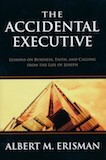Don’t Let Your Passions Overwhelm Your Duties
Blog / Produced by The High Calling
If Thomas Jefferson were alive today, he’d be an iPad guy. I’m sure of it.
He’d have solar panels on Monticello, his sprawling home in Charlottesville, Va., and a fancy home-security system he could operate from his mobile phone. He was awful with money, so he probably would have loaded up on Facebook stock the instant it went public.
Jefferson, as a recent visit to Monticello with my family made clear, was a fiend for technology. He lavished time and dollars on sophisticated clocks and mechanical doors and a viewing device that led to the invention of the camera.
Our tour guide shared this quote from him: “Science is my passion, politics my duty.”
Jefferson, of course, invested huge amounts of time on the latter.
That didn’t mean it was his first love or that he even particularly enjoyed it. But he had a talent for politics, and people were counting on his leadership. So he did what he had to do for decades in an astonishing number of ways. He authored the Declaration of Independence, became governor of Virginia, did a stint as U.S. Secretary of State, served a four-year term as Vice President and then two terms as President.
Only then, at age 66, did he finally retire to Monticello to tutor his grandchildren, putter in his garden and ponder ways to enhance a farming tool known as the moldboard plow.
His example stands in stark contrast to today’s prevailing wisdom that we should “follow our passions” in work and love and leisure.
It’s not that it’s a bad notion. It’s just that the way we interpret it tends to cause trouble. Because most of us need to work, we can easily convince ourselves that our jobs must fully express our passions—and that anything less than total fulfillment is unacceptable.
I know because that’s how I spent my entire 20s and a good chunk of my 30s.
In the end, we search vainly and relentlessly for a job that makes us feel complete, only to find ourselves stuck in place like a malfunctioning mechanical door at Monticello.
Jefferson suggests a wiser path: don’t get so hung up on our passions that we forget our duties.
They include providing for ourselves and families, helping friends, contributing to our communities, and paying heed to God. Sometimes that’s going to mean walking out the door to a job that doesn’t thrill us every moment of the day. And that’s all right.
Because, as Jefferson found, even our duties can inform and strengthen our passions.
All those trips abroad and meetings with famous people required by politics fed his knowledge of science. They exposed him to great books and new ideas and broadened his mind far more than if he’d merely tinkered away, year after year, at Monticello. And fortunately for the rest of us, his scientific interests surely shaped his willingness to experiment daringly with democracy.
In the end, Jefferson created an extraordinary life not only by focusing on what he wanted to do but also by accepting and learning from what he had to do. Can we find it in ourselves to do the same?
Stephen Martin is a speechwriter and journalist who blogs at The Messy Quest. His first book, The Messy Quest for Meaning, which explores how to find a calling, was just released by Sorin Books.
Image by Overdaforest. Used with permission.





